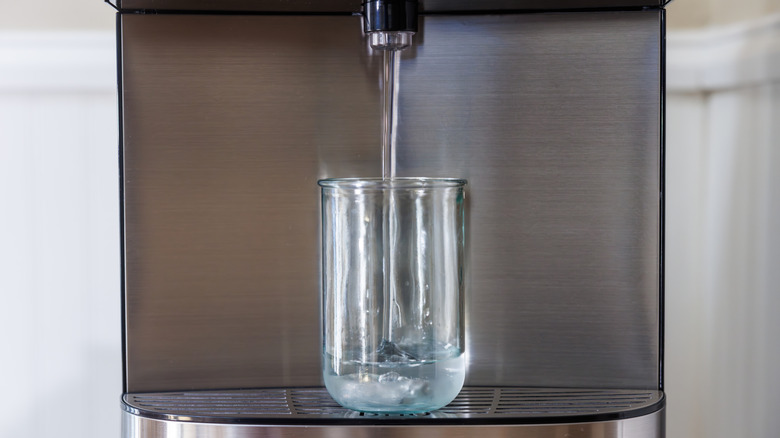How Long You Can Expect A Reverse Osmosis Countertop System To Last
It is a truth universally acknowledged that tap water is often not the tastiest or healthiest in some places around the country. While it's possible to purchase bottles of water to fulfill your hydration needs, this isn't environmentally friendly or practical. Instead, it makes sense to install a home water filtration system to optimize your tap water and make it safe and pleasant to not only drink but use for other everyday purposes like showering.
Sometimes whole house water filtration systems can get expensive, and you may find your need for cleaner, fresher tap water is focused in one room in your house, not the entire building. This is when a system that focuses on a single purpose, like drinking water, may be the most beneficial for you. Filters that go straight onto your faucet are definitely a possibility here, however, a reverse osmosis filter will change the way your drink your water.
Countertop reverse osmosis filters are compact versions of systems that would otherwise normally service an entire house. These filtration systems are small countertop units that come in two styles. One has a tank attached to the filter system that you fill manually. The other has a hose that connects straight to your water source. They're meant to be petite, unobstructive, and convenient. However, as with most home gadgets, there are some hidden downsides to water purifiers of this size, including their longevity: You can expect reverse osmosis countertop systems to only last between five and 10 years.
The positives and negatives of these systems
As we've seen, a countertop reverse osmosis system's life expectancy is, at maximum, a decade. This sounds like a long time, but when compared to a house-wide system or an under-sink unit (which has its own pros and cons to consider), it is considerably shorter. With proper care, for example, an under-sink system, which can be mounted to service your kitchen sink specifically, can last as long as 15 years. However, not everyone needs systems that last this long. A countertop unit is compact and moveable, not to mention extremely easy to use. Often, it requires little to no plumbing intervention which makes it an inexpensive and effortless way of getting decent drinking water. This is an ideal solution for renters who have little control over big house improvements.
Reverse osmosis filters utilize a natural filtration process in which water molecules are moved through a semi-permeable membrane, effectively trapping impurities behind the barrier. Simply put, the water molecules can get through the membrane, but heavy metals, minerals, and other contaminants can't. These are subsequently flushed through other filtration mechanisms. Thanks to this mechanism, you can expect to replace filters every six to 12 months and replace the membrane in the unit every couple of years, depending on the brand of machine you choose. The cost and hassle of these replacements should be taken into account when you consider buying a reverse osmosis countertop system.

